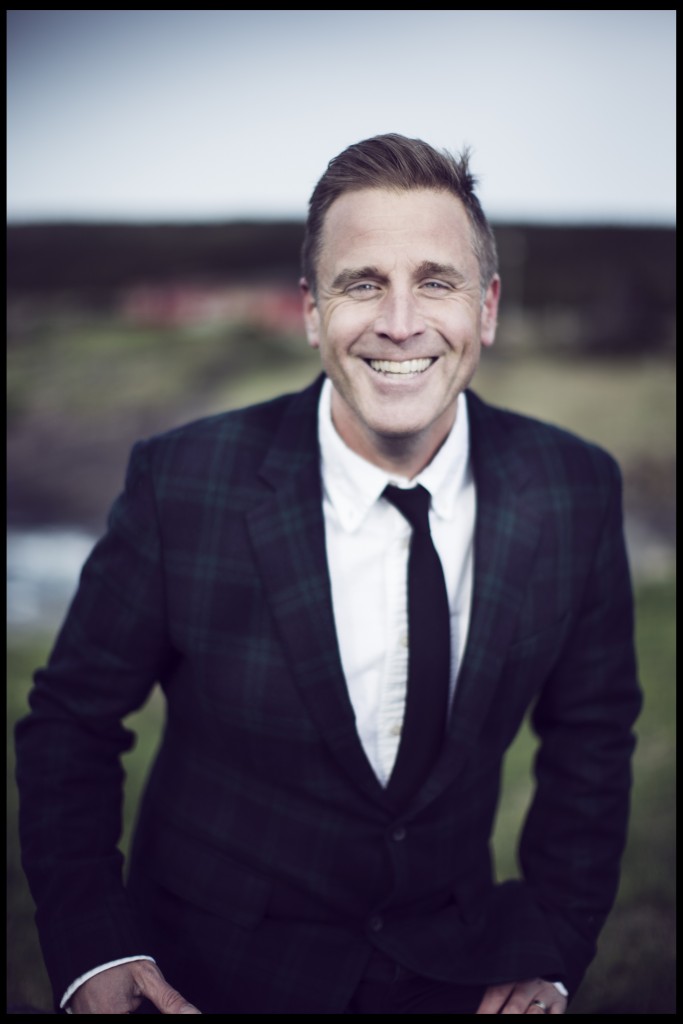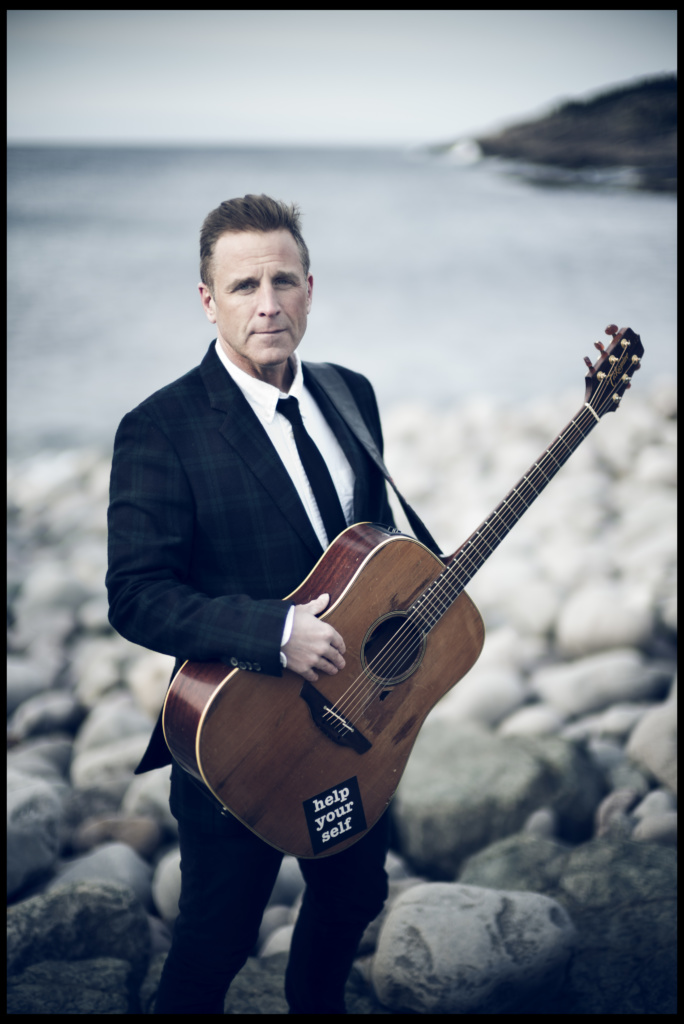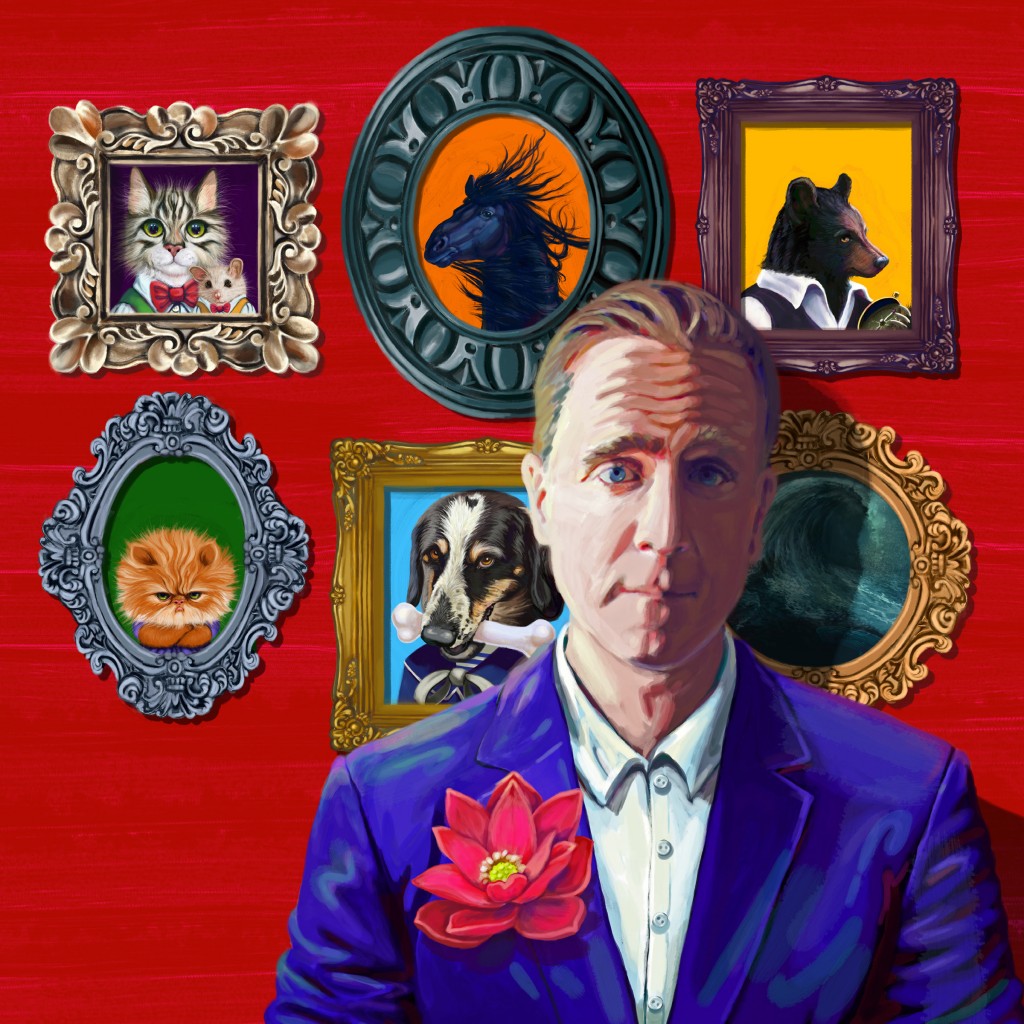
While working to achieve his dream of becoming a professional musician in the late 1980s and early 1990s, Sean McCann was also working on a Master’s degree in Folklore. A passionate devotee of the music of his home province of Newfoundland, the degree quickly took a back seat once the band he co-founded – Great Big Sea – became a national phenomenon.
For 20 years, McCann and his bandmates thrilled audiences throughout North America and Europe with their unique hybrid of traditional east coast musical fare mixed with healthy doses of contemporary rock and pop. But he never lost his appreciation for the homespun classic songs of Newfoundland and the canon of material that has come to be known as the Newfoundland Songbook.
And through his studies McCann came to appreciate the efforts of a man who did so much to preserve and promote traditional Newfoundland music more than seven decades ago.
Throughout the 1930s and into the 1940s a successful itinerant salesperson named Gerald S. Doyle travelled throughout Newfoundland, filling the orders of his clients and taking new ones. The annual sojourn saw him get into some of the smaller, more out-of-the-way communities and forge relationships with the locals.
As he travelled, he would hear different songs being played and sung by residents in these various out ports, villages, hamlets and small towns. Doyle fell in love with the music, recognizing that it was emblematic of a unique culture that permeated Newfoundland.
He would publish the songs in a sales booklet each year, so the sheet music and lyrics would be featured along with the wares he was selling. A brilliant marketing strategy for sure, but it came from a true fondness for the music.
To honour this legacy and the music both McCann and Doyle’s love, the native of Carbonear is releasing a new project called You Know I Love You – a combination album and songbook that features a collection of revelatory new original songs and a which is bold step forward in a solo career that is as much a personal catharsis for McCann as it is an artistic evolution.
“My last album, Help Your Self, which I put out not long after leaving Great Big Sea, was about me dealing with my past and my demons and facing them. Honestly, I didn’t think anyone would be interested in any big way, but I was surprised at how it resonated with people who had gone through horrible times or had suffered from addiction. I did a few shows with that record, kind of dipping my toes in the water and I was really encouraged by that whole process,” McCann said of his first ever solo shows throughout 2014.
“This time, I am a different person and as I was writing the songs I was seeing the world in a different way – in a very sober way. I had become clearly focused on what it was that I wanted to do and I kept writing. You Know I Love You is a continuation of my story. And they are songs that are meant to be sung, which is why I am going on tour with a goal of having everyone singing them. That’s why I put them in a 24-page songbook and provide the lyrics.”
It is rare to see a human being and artist, especially one with a significant profile, be so open about their struggles in the manner that McCann has been since leaving Great Big Sea after their 20th anniversary tour in 2013. Both through his music and telling his story onstage, McCann is not only continuing his own journey but also striving to impact the lives of others.
“Help Your Self saw me facing a problem that I was in denial about and also facing my history which was one of abuse. I was abused by a parish priest when I was a teenager. And that sent me on a darker path and I quickly buried my emotions in booze and basically didn’t deal with that for 30 odd years; I just drank myself silly. I was a high-functioning alcoholic and I was in a very successful band. When I finally sobered up, all those old feelings came back and I remembered all the stuff that I did and that had happened and that was such a hard thing – facing it, dealing with it, accepting that it had happened to me and admit that it happening. It was hard on me, hard on my parents and my family,” he explained.
“But I got that out of my system. I put it out into the world through Help Your Self and everything felt lighter. I love poetry and I love writing songs and I use music as my therapy. Songs are what got me through all this and I realized when I put my anesthetic aside, the songs were still there. So I was able to move through that transition and You Know I Love You is about how I am living now.
“I am now sober. I am done with my former life and I am not going to live that way anymore. I think it’s a positive progression and it’s a lighter record, you can hear it in the songs. And there is a lot of gratitude on this record. I am a lucky person: I still have my wife and my kids and I am alive, and I am alive because of the decisions and steps I have taken and, you know, I need to be grateful because a lot of people don’t come out as lucky as me, especially in this business.”
The concept of spreading his songs and encouraging people to learn them and sing them picks up from where Gerald Doyle left

off, and it underscores McCann’s firm belief that even in the digital age, music is still valuable, still able to positively impact people’s hearts, minds, souls and spirits.
“I care about music still. It’s important – it’s important to me. I understand that music today is so disposable and easy to get and so many people feel they don’t need to pay for it. So it’s a big challenge to go out there and create record and release new music, unless you’re rich. But it’s important for me to really create the music I feel compelled to make, even though I have certainly taken a big pay cut in going solo. Music helped me get through the hardest part of my life and I know my music may have touched other people. I was encouraging to hear that Help Your Self and this new record may help people,” he said.
“So, yeah, music matters. I believe it still matters and hopefully people will want to buy the book and want to come see my shows. And I believe people will care enough to do that and if I am wrong, then I am wrong, but at least I will have tried. I think I have written songs that people will like and will want to sing. I believe I have something to say and I am standing by these new songs. So I put my money where my mouth is in creating these books because they weren’t cheap.
“And I learned from Gerald Doyle that you can bind people together with a book of songs. So I am kind of stealing from the best in a way. It was an effective took back then because it did, in effect, create Newfoundland music. And my goals is that You Know I Love You will encourage people to sing the songs. I firmly believe when you actually sing, you feel better. And I want people to feel better when they hear and sing my songs.”
In order to make the songs sound as good as they possibly could, McCann enlisted the help of songwriter and producer extraordinaire Joel Plaskett to produce what became You Know I Love You.
“Joel listened to my early sketches and said, ‘these all sound like happy songs.’ And I said, ‘yeah, so let’s make a happy record.’ That’s the only direction I gave him, and the only direction he needed. Joel is made of music and music is so important to him. He just understands the role of producer is to hear what I am trying to say and make it so other people can hear it too. He is a great musician and he played on this record and he arranged it all. He is such a good collaborator because he ‘gets it.’” McCann said.
“He is also concerned about how it sounds. We recorded everything on two-inch tape because we wanted it to sound really good. And it has such a broader sonic scale compared to a digital recording. Some people may ask ‘who cares?’ People aren’t listening to entire records, by and large, these days and they are listening to songs on ear buds and off their cell phones. But here Joel and I are doing this because we do care. We care enough about the songs to care about how it’s made and how it sounds.”
Some of the songs for You Know I Love You were written while McCann took a soul-searching journey to the blustery Fogo Island.
“The song On My Way is kind of emblematic not only of the album, but of my life right now. I am a work in progress but I feel like I am heading in the right direction. I don’t know where the end goal is, but I feel like I am going there. And really, like the old expression says, it’s the journey that’s important, not the destination. Fogo Island is a small remote island of the bigger remote island of Newfoundland and there were these crazy winds and stuff. I was watching this raging storm and that’s when the first words for the song came into my head,” he explained.
“Rise and Fall is along similar lines and I also wrote it on Fogo Island in that same storm. I tend to accumulate pieces of music during my travels, but when It comes to actually crafting complete pieces of music I need to be isolated in nature – just immerse myself in it alone. Sometimes I will go to Banff and be in the mountains – anywhere I can be alone in nature is pretty good. And for some reason, extreme weather is usually helpful too.
“That storm was something else. I was born and raised here and I don’t think I have been through something like that before. And Rise and Fall isn’t so much about my journey as it was about the ancestral history of Newfoundland and the hard work and perseverance you need to be able to live in a place so harsh and to make a living by fishing in an ocean that could literally kill you. I was, and I kid you not, out on a rock on a cliff and I just looked out over the waters and said, ‘wow, how did people do this? They were some tough.’”
McCann said he had been disillusioned with the direction of Great Big Sea for some time, but he submerged his feelings in alcohol and didn’t make the final decision to leave until he had gained a foothold on sobriety.
“We really weren’t playing that much and we weren’t functioning as a band. I loved the band so much that I didn’t want to be around for what I considered to be the inevitable train wreck that I saw coming from lack of enthusiasm and focus. Our priorities were scattered and we were becoming a machine, a corporation, not a band. I was angry about a lot of things on a business level and there were a lot of changes going on that I wasn’t happy about,” he said.
“We weren’t writing songs and we weren’t playing. When you’re not doing that, you’re not a band any more as far as I am concerned. I told the boys a year before the last tour started that I was gone. My heart was breaking so I decided to bow out. I thought it was time to end it because I didn’t see any future. But I was sober a year before I came to that conclusion. As a drunk person, I would have never figured it out. To my shame, because of my drinking, I feel I could have been a better contributor and I could have handled things better, but I didn’t. I won’t play another Great Big Sea show until Great Big Sea gets together and actually agrees that they care about Great Big Sea. And that wasn’t happening. When you realize that nobody cares like they used to, you shouldn’t be doing it any more.”
But that doesn’t mean McCann won’t be singing Great Big Sea songs when he plays live.
“I play them every night because people want to hear them. I wrote many of them and they are really good songs, especially the older ones. They were group efforts and everyone was invested in them, especially the fans, so they deserve to be played. It’s part of my story,” he said.
“But I also really believe in what I am doing now. I literally want the second half of my life to be real and sincere and authentic and to develop real connections, not some image that we have to format and maintain. I don’t what that any more. I wish the boys well and if they ever decide to make the band a priority again, I would be right there.”
In the interim, McCann will be coming to Eastern Ontario in late October, performing at the Active Arts Studio in Prince Edward County on Oct. 22, Chalmers United Church in Kingston on Oct. 23, and the Gordon Best Theatre in Peterborough on Oct. 24.
For more information, visit the website for each venue, or www.seanmccannsings.com.
- Jim Barber is a veteran award-winning journalist and author based in Napanee, ON, who has been writing about music and musicians for a quarter of a century. Besides his journalistic endeavours, he now works as a communications and marketing specialist. Contact him at jimbarberwritingservices@gmail.com.


I am learning to play guitar and I would love to know the chords for “You know I Love you”…. Thank you!